|
7/31/2022 Lifehacks - Sun Jul 31 2022Jesse Bradley cartoons on Instagram @questionabledecisioncomics.
7/21/2022 Sam Strives For 55 - Week 27Here is week 27 of Sam's reading journey, the metrics and first week can be found here The Girl Who Kicked the Hornet's Nest(Millennium #3)by Stieg Larsson, Reg Keeland (Translator)
Jesse BradleyI met The Klute 20 years ago. I was just starting in poetry slam and he was just a few years in. We didn’t like each other but became good friends after I grew up a little. We tortured nerds at Nerd Slams with our trivia expertise. He was a good poet, but a better person, which I feel matters more. Below I hope is what The Klute has become now that he’s shed his mortal shell, doing what he does best. I wish I had more words to say but I’m still in shock, like all of us. h.News travels fast in Phoenix. I'm not even in Phoenix proper anymore, barely Maricopa County. But word came to me this morning that Bernard Schober had passed Monday morning during a hike. He'd had heart issues a while, so this was not surprising albeit still very upsetting. I remember how bleak things had felt in his last hospital stay, to the point where my son Ace sent a video saying "I love you" just to be safe. Klute, as he was known in our circles, was someone Ace and I frequently ran into around town. I had met him after being booked on the same live talk show at a theatre called Space 55. From there, I'd run into him stopping into the Nile in Mesa for a vegan goodie, finding him at breakfast with friends. Or Ace and I would see him at one of a number of comic cons, library cons, book festivals, or zine fests. In fact, I had helped organize PHX Zine Fest in its first years, and Charissa Lucille from Wasted Ink Zine Distro was one of the first people I shared the bad news with. They asked me for some thoughts to place on the PZF site, right around the same time I was talking with J. Bradley about doing the same for Meow Meow Pow Pow. Jesse hadn't known that I was friends with Klute, nor did I know the same about Jesse, until this morning. That's how far the man's reach has. And how deep an impact, that we all want to use the power of our words to honor someone who was so skilled with words himself. His sense of humor and his sense of right and wrong went hand in hand, often used to challenge politically abhorrent people online, or advocating for what was most important to him. He was as funny as he was passionate, and he could use that to eviscerate someone rhetorically, or champion the people and causes he cared about. He was a vocal defender of the environment, the ocean, and sharks in particular, and he backed his talk up by going out to explore, document, and report on everything happening on those fronts. He never stopped believing in the power of words, and more importantly, the power of a person who gives a damn and shows up to do something about it. The small print and zine scene, the slam poetry and spoken word community, the scuba diver and shark conservationist and environmentalist movements, these are all tight knit groups and Klute was an important part of each of them. I think he would be humbled at the outpour of emotion for him today, and tributes which will certainly continue for years to come. Klute had seen a man die in a grisly boat accident during one of his last dives. The experience shook him, and his account of it had shook me. He wrote about it in the last poem published on his blog, which I'll reprint here, and leave as his last testament - although the friends and people who loved him that he has left behind will be testifying to his kindness and goodness for ages to come. Death At Sea - Kluteor a Great Hammerhead Responds to the Sinking of the Fricka, April 16, 2022 (Sphyrna mokarran) When a sailor dies at sea
some of your kind say they become dolphins. The human belief that dolphins are beneficent is based on their smile but when you see it you are not caught in a gleaming beacon of friendship the cetacean is no Lisa Frank rainbow swimmer; they are the grinning monster under the bed, and you are staring down the Joker’s knife. They joyously ride the bowplanes of a ship the way a siren uses a tuning fork to test their voice. Every boat that leaves the harbor has an escort, a pilot to guide you through the treacherous waters, because once free, you belong to them. And they know. They can echo heft of an iceberg, smell the intensity of flame, count the grains of gunpowder that can dance upon a pinhead. Why they do it, we don’t know, a rumor’d bargain struck long ago to enrich Neptune with a chain of souls they carry men to the Reef of Tolls. Their smile knowing, a permanent smirk knowing that a death at sea is not a joyous moment for a future of surf and a seafood smorgasbord. It is the grief of widows and orphans, lawyer’s pens scratching paper the tick-tack of typing out press releases telling everyone the search will end at sunset. While dolphins play, we toil. Despite all our teeth, we have no grin. Vilified for honesty, our mouths are open to enrich us – food for the body or food for the blood. In this Blue Eternal, these heavenly waters, there is nourishment but it is work, no deals with decrepit Gods who died long ago. We are all Old Salts having passed in the sea from one form to another. This one now that I borrow, will return spiraling to the trenches and claws, is a scale held by Neptune’s sister Themis with each of my eyes as far away from the other that seaworthiness allows. I see all. I sense all. The justice of Gods and evolution flowing through me So when you saw me speeding along I was racing towards to dying. While you hovered, exhaling nitrogen in miniature bubbles, tragedy enflamed my every synapse in already knowing the outcome. By the time you had arrived, die was cast, red and unflinching. I was there to take the tally, So if a dolphin must ferry a man’s soul as part of the Trident holder’s take, decoration for the god whose skeleton fringes the shore of the World Ocean, know we were there to see it transform faster than the smilers can carry it away. The body hauled on board I continued on currents, always moving. Mourning is for living of the land. For me, death simply is. It was unfair, unjust, Crane’s Open Boat on Winslow’s Gulf Stream. Unlike most sharks who either believe in only the infinite chance of Evolution or the benevolent grace of a violent Sea, I believe in your God and your Devil. This tempest of blue is just another of their tables In the hold of a pirate’s bark that will never reach its destination until the Sun has flared and my home has evaporated into stellar mist. Each of them cheating at Liar’s Dice, playing for souls. Whether as solitary glimpses under a blaring star or in great packs that create shadowplay, we will always swim to a dying ship, there to witness. If Judgement is to come, our heads will tip port, starboard, good, evil let the gods, both living and dead, know that a soul was there, and if it needs to be carried we will do it as neutral as we can balance in the uncertainty of a shipwreck when death comes at sea. When a sailor dies at sea some of your kind say they become dolphins. Our kind believes they become something more. Levi RogersI’d just gotten off work early and was driving home when I had the idea. It was a Thursday night, warm and wet. The bar I worked at was dead—a combination of it being Thursday and a record-breaking season of rain hammering the Portland, Oregon streets in early June. I’d stopped for a cocktail and fried chicken sandwich at Basilisk before driving back home to my wife and two daughters (secretly hoping they would be in bed by the time I made it home). It felt like the first moment I had to myself in over two weeks. I was sitting there at the bar, scrolling through my phone, making some notes on writing projects to tackle, when a random idea struck: The idea? I should watch Mr. Mom. I should watch Mr. Mom and write an essay about Mr. Mom as a stay-at-home-dad in the year 2022. For lately, whenever I mentioned to someone that I was a stay-at-home-dad, (or was out and about in public with my two young girls), someone, generally older, would make a comment about me being “Mr. Mom.” “Ah, look at Mr. Mom!” they might say. Or, “You’re a stay-at-home-dad? Mr. Mom huh? Ha!” They would chuckle. I would chuckle. But lately it had begun to bother me. The term felt condescending, pejorative. Yes, I was currently a stay-at-home-dad, but I had also started a coffee roasting company, was a freelance writer, and even had a Master’s degree (albeit in “creative writing” which has never felt like a real Masters degree). Anyways, I’d never seen Mr. Mom, but I somehow knew the film starred Michael Keaton. Right? I looked it up on IMDB. Right. Check. I could guess the plot based on the title. Would it be worth watching? Or so bad it was cringey/laughable? I had to find out, so I decided to rent the movie when I got home. “Want to watch Mr. Mom?!” I excitedly asked my wife when I got home, throwing my rain jacket on the back of a metal dining chair and slipping off my black Bloodstones. “Um…okay? What is that?” I caught her up on my plan, to which she nonverbally agreed by shrugging her shoulders while scrolling through her phone. I poured myself a drink and sat down, my expectations low. I’ve always like Michael Keaton though (I mean, who doesn’t like Michael Keaton?) Mr. Mom came out in 1983 and was Michael Keaton’s second feature film role after Night Shift. I have not seen Night Shift but after reading IMDB’s tagline for the film, I am pretty sure it’s type of sleazy, eighties comedy film would not be made today. Night Film is about *checks notes* a morgue attendant who runs a prostitution ring out of said morgue? Is that right? (I might have to bookmark that for the next essay.) Anyways, directed by Stan Dragoti and written by John Hughes (the most prolific writer, director, and overall vibe setter for films of the eighties--Sixteen Candles, Ferries Bueller’s Day Off, The Breakfast Club, Uncle Buck, Home Alone, Planes, Trains, and Automobiles, etc.) Mr. Mom stars Michael Keaton as Jack Butler, an upper management employee at an auto manufacturing plant in Detroit. The film also stars Teri Garr as Keaton’s wife Caroline Butler, and a young Jeffrey Tambor and Christopher Lloyd as Keaton’s soon to be ex-coworkers. Keaton soon loses his job in the automotive industry and both him and his wife apply for work. His wife lands a job first, however, at a Mad-Men-esque-ad-agency. It’s a boys club made up of men trying to sell products to housewives. It’s misogynistic and smoke-filled and belittling to Caroline. She soon proves herself though (in the first meeting!) by educating the men on how to appeal to housewives. The head of the company takes an interest in her and starts taking her everywhere and driving her to work (totally normal eighties behavior, right?) Jack throws himself into the stay-at-home role, despite his comical ineptitude at first. The way Jack moves through the supermarket it would appear he has never stepped foot inside one. Perhaps men really didn’t shop for groceries in the eighties? More hijinx ensue. With vacuums, cooking, bath time, etc. Jack is soon watching daytime soap operas. Playing poker with coupons with the other stay-at-home-moms. This is a fish out of water story, made funny by the defamiliarization of a man, yes a man! taking care of his kids and staying home with them. Still, Jack is no sitcom slacker Dad. He might do things his own way—as all stay-at-home-parents should—but there doesn’t seem to be any begrudging resentment of him staying home as you might expect from such a film—although it is admittedly, a slapstick, lighthearted comedy not interested in going too deep beneath the surface of the characters psychology. What I found particularly interesting was the way in which Jack occasionally feels the need to prove his “manliness” (especially to his wife’s boss who has taken an interest in her). In one scene, Jack enters the house with a chainsaw (who knows why) and offers the boss a beer. Boss to Jack: “It’s eight o’clock in the morning.” Jack: “Scotch?” The need to prove oneself as still masculine is especially true for the stay-at-home-dad, a role that has historically been “feminine.” For years, decades even, the domestic labor of the stay-at-home-parent (one that is still predominantly made up of women) has been under-appreciated, overlooked, and taken for granted by society. Mr. Mom is also a movie about the dynamics between partners—the working parent vs. the stay-at-home-parent, the inherent tension between two parties trying to raise children and have a career. Jack wants Caroline at home more. Caroline likes her job, but the hours are long and the demands stressful. One evening, Jack cooks Caroline a big meal only to come home late while he ends up asleep on the couch. Eventually, they find a balance that works and soon Jack is re-hired at his company and Caroline keeps her job. It’s a happy ending all around with some life lessons learned along the way. The pandemic has recently brought some clarity to just how essential childcare is to a functioning society. When daycares closed—forcing parents to scramble to find childcare or need flexibility from their employers to work remotely and stay at home—we found out just how much we took childcare for granted. If parents must stay home with their kids, they can’t work either. Now two-three people are out of a job—the childcare workers, the parents, and the owners of the childcare. A ripple effect that continues to spread. It’s almost as if what society wants from parents is not more children, but productivity from the parents and more little workers for when they die. Now, this might be an obvious statement, but I believe the decision to have kids is a personal choice. No one should be forced to have a child, and no one should be forced to apologize for not having one. I know that single people might not love the idea of having to support other people’s children and complain about child tax breaks and so on, but really this is the bare minimum our government in the United States seems to do for children. The cost of childcare is already almost prohibitively expensive for parents, while childcare centers themselves are barely making a profit and child carers often make little enough to keep them there. And that’s if you can even find a childcare center. The waitlist here in Portland for a daycare you feel good about sending your kids to is 6 months to two years. Society wants people to have kids, but they don’t want to feed or cloth or educate them. (I have a lot of thoughts and rage about this but I don’t want to lapse into a monologue that would bore you). In this regard, as Jack and Caroline deal with an economic downturn of the auto industry in Detroit, it’s not too dissimilar from the pandemic and subsequent loss of jobs we found ourselves in in 2020. Add an increase of stay-at-home-dads to the mix and Mr. Mom is probably more relevant than at any other time. Has society changed much since Mr. Mom came out? Of course. There are more stay-at-home-dads than ever before and more women in the workplace. Still, equality and pay in the workplace is still lacking for women as is the normalization of the stay-at-home role for fathers. I think Mr. Mom needs a reboot. Mr. Mom 2? Mr. Mom 2(022)? Or something. That could be an interesting movie … I’ll have to ask my movie making cousin in L.A. if that’s an interesting idea. So, does the movie hold up? More or less. It’s pretty funny, decently well-written and acted, but it’s not classic or timeless in the same way that many other John Hughes or Michael Keaton movies are. Still, I will take it as less of a dig next time someone calls me Mr. Mom. I might even take it as a compliment.
7/17/2022 LIFEHACKS - Sun July 17 2022Feel free to tag @questionabledecisioncomics on Instagram if you do this exercise and want to share. We hope it helps.
7/15/2022 Sam Strives For 55 - Week 26Here is week 26 of Sam's reading journey, the metrics and first week can be found here The Girl Who Played with Fire (Millennium #2) by Stieg Larsson, Reg Keeland (Translator)
Final Rating: ★★★ = Give it a go. It’s good! It didn’t quite make it into the For Sure Absolutely Read This category, but hey, it’s all subjective.
7/10/2022 LIFEHACKS - Sun July 10 2022Please donate to the National Network of Abortion Funds or to a local org of your choice that helps people get the safe abortions they need. Follow Jesse Bradley on Instagram @questionabledecisioncomics.
7/7/2022 Sam Strives for 55 - Week 25Here is week 25 of Sam's reading journey, the metrics and first week can be found here In Cold Blood by Truman Capote
★★★★ = For Sure Absolutely Read This - but you might not like it. That’s okay too! I did.
7/5/2022 Reginaologyby Hattie Jean HayesWhen I was sixteen, I heard my first Regina Spektor song. My best friend Cassie, a dancer, invited me to her recital, and someone else in the company performed a beautiful dance to “Eet.” The dance itself was brilliant, and the choreography masterful; even as someone who is barely competent in basic, day-to-day locomotion, I could still describe each beat in detail. But the song. It began with soft piano, swelling up to meet an easy, lilting voice. My whole musical life, I had been trying to find one specific tone, an impalpable timbre that sat just beyond the edges of my consciousness. And then I heard the voice, and the lyrics. All of it was instantly familiar. It felt like something I’d known before. The moment it was over, and I found Cassie in the hallway, pulling on normal clothes, I asked about the song. “What was that?” I asked her. “Who was that?” “Oh,” Cassie replied, “that was Regina Spektor. I’ll make you a mix CD.” Cassie made me a CD, and that was the beginning. I remember sitting at Cassie’s kitchen counter, watching her painstakingly click and drag the tracks she would burn onto my special mix. Some were studio recordings and others were rips from YouTube videos, with audience members whispering and finishing their drinks in the background. This mix CD was where I first heard “Loveology.” “Loveology” is track nine on Regina’s recent album, Home, before and after, but plenty of fans – myself included – have had it memorized for years. By the time I discovered Regina Spektor’s music for myself, in 2010, it had been almost a decade since her self-released debut, 11:11. Regina is re-issuing that album this year in a special anniversary edition, along with a record called Papa’s Bootlegs, comprising twenty songs recorded by Regina’s father, Ilya, at her earliest shows. Bootlegs, from Ilya or otherwise, have long been a facet of Regina Spektor fan culture. On my first homemade Regina Spektor CD, Cassie added what was the most popular version of “Loveology” for at least 15 years, recorded at Tonic in New York City in October 2004. The song inhabited a strange space for many fans: Regina retired it from concert performances for around a decade, so only those lucky enough to have seen Regina play early in her career could say they’d heard it live. But then again, we’d only heard it live, in a bar, in a crowd. When Regina performed “Loveology” with the National Symphony Orchestra at the Kennedy Center in 2019, fans were thrilled to have a “proper” performance of the beloved piece, but shocked by the dissonance between old and new. “It's really nice to see so many people expressing their love for this song considering we were all listening to the same bad quality audio track with clanging dishes and audience chattering,” one commenter wrote on the YouTube video. “The one with the person who claps a bit too soon at the end,” recalls the first reply. “I’ve waited my life for a high quality cover of this song,” a viewer wrote. And I had, too – my adult life, at least. When What We Saw From the Cheap Seats came out in 2012, I had a year left of high school. I listened to the album for the first time on my bed, staring at the ceiling, with headphones in, absorbing it all. I had hoped to see Regina play live when she came through Kansas City on tour. For whatever reason, I missed Regina’s show in my area, and so listened to the album on repeat instead, watching clips of recordings and livestreams online when I could. After Cassie introduced me to Regina’s music, after I saved it all to my iPod so I could have it all the time, I passed the mix CD and the new album along to my father, who listened to them almost as religiously as I did. A few weeks before I left my Missouri hometown to attend college, my dad came to me and asked, “Do you listen to the song 'Small Town Moon' a lot?” I told him I did. “Does it make you sad?” he asked. I told him it did. “Well, baby, don’t you worry, worry,” he said, quoting the song at me. Then he grinned. “But be careful,” he continued, “because everybody not so nice, nice.” The song, I knew, made him think of me. It made me think of him. It includes the line, “How can I leave without hurting everyone that made me?” I spent the summer before college with that album, and the ones before it, and my family. When I moved to Arizona I didn’t know anyone. I bought a record player and the album I listened to most was Regina’s Live in London. I made friends and met neighbors. If they weren’t already Regina fans when we met, they learned the order of the songs on each album by listening with me. Remember Us to Life came out in 2016, on my 22nd birthday. Regina launched her solo tour in Arizona the following summer, but I missed that, too. I was moving to New York. The show was in New Jersey on a Friday night. I had been at my new, grown-up, magazine job for one pay period. Rent wasn’t due yet and I only needed one ticket. There was a New York show scheduled, too, but I had missed the chance to buy a ticket and the resale seats were too high. Even with my bus ticket, New Jersey was cheaper. Besides my family, I hadn’t told anyone I was going, because I didn’t know anyone in New York. Or, rather, I did know people, but I wasn’t ready for anyone there to know me, in the way they would if they came along. And I had waited years to see Regina live. I didn’t want to be distracted. I wanted to be greedy. It was November, and I walked from the bus station to the venue. The first thing I did was buy a t-shirt, and then go put it on, thoroughly uncool and enthusiastic. My solo seat was in the mezzanine, between two women in businesswear and a pair of teenage girls chaperoned by a father. There was a new dimension to the music, one that even the bootlegs from crowded bars in the early days of Regina’s career couldn’t capture: in the auditorium around me, everyone was singing quietly, under their collective breath, a body of work we knew by heart. I knew no one but I was welcome. I had resolved to something very out-of-character after the show. I was going to wait, outside, by the bus, to try and meet Regina Spektor. I shivered in the parking lot with three teenagers and their mother. It was all vaguely mafiaesque, the group of us cowering under the streetlights and the drifting snow. After an hour, the back door of the theatre opened. Regina Spektor walked out of that door. The teens’ fervent whispering increased in volume and pitch. I felt a little jealous, wishing that I could’ve been one of those kids in high school, staying out late with my mom’s permission to meet my hero, but before I could judge myself further she was smiling in front of me. Regina. “Hi, I have listened to your music since I was in high school,” I began, trying to remember other relevant facts about myself and my presence in this parking lot. “I moved to New York a couple months ago and the first thing I did was buy a ticket to this show, because I have never seen you in concert, and your music is the art that has had the most lasting impact on me, and it only seemed right to tell you in person. Thank you so much for being the person you are.” Regina Spektor laughed and pulled me in for a hug. She was bright and warm and smelled exactly like Swedish Fish. “Welcome to New York!” she said, even though we were in New Jersey. She went back to her tour bus, and I started my own trek to a different bus, but the teenagers and their mom pulled up alongside me and offered to drop me off at the station. By the time I got home to Queens, it was three in the morning. I slept the whole weekend long, and when I was awake, I listened to my mix CD. When I told my dad and Cassie about the concert, I told them that I had lingered, that Regina had hugged me, but I didn’t tell anyone else. Over the next two years, I saw Regina perform two more times. Every time, she performed a different selection of songs, new and old and never-before-heard. Regardless of my long history with Regina, I didn’t feel nostalgic hearing the songs I’d loved in high school. I still don’t. For me, nothing her music conjures needs to be remembered. Those emotions are still there, even if they have been edited and remastered and refined; these feelings are no less authentic for having grown up. When Regina announced her Broadway residency in 2019, I was filled with equal parts giddiness and dread. I had never been so scared about missing out on tickets. This sensation grew when I learned that every show of the five-night run would be slightly different, with surprise guests, different setlists, and new visual elements to accompany each song. I asked my then-boyfriend whether he would be offended if, instead of buying two tickets for one night’s show, I bought two individual tickets, for two different nights, and went by myself twice. I wanted to experience as much as possible, I explained, and I couldn’t justify spending money to see her every night of the series, but going to the first show and the last show seemed reasonable. He understood. In June, I headed to the Lunt-Fontanne for the very first show of the run. Despite my single ticket, I ended up sitting with some acquaintances in the high mezzanine seats, but by this time, I was not so precious about my concert experiences. The stage fit the dramatic setting, with a single spotlight illuminating a piano in the middle of the stage. To the right of the piano was a landscape familiar to me from other shows: a keyboard, space for a guitarist, and a capella wandering grounds. On the left, though, was a red platform that covered the ground. It was reserved for tap-dancing, which featured heavily in a new song debuted that night, "Spacetime Fairytale." This was the true Broadway spectacle I had hoped for. The opening show happened to be on World Refugee Day. Regina dedicated a cover song to her father, singing Nat King Cole’s "Smile,” honoring the family’s move from Moscow to New York almost exactly thirty years prior. Her keyboard player, Brad, took over the piano, and Regina walked across the stage as she sang to Ilya. “Smile, and maybe tomorrow,” she sang, light gleaming off her hair, “You'll see the sun come shining through for you.” The show closed with “Samson” as the encore. As Regina sat down and began playing, confetti snowflakes began falling down from the ceiling. The entire theater gasped: a moment of speechlessness after a night of reverent repetition. Slowly, the flakes covered her hair, the floor, and the piano. When Regina left for the evening, she left a snow-covered stage behind her, with a Regina-shaped empty spot on the piano bench. That week, I waited for the final show on June 26th. I was eager. I got to work early, so I could leave early, and I arrived at the Lunt-Fontanne very early. The weather was nice, so I went to a coffee shop around the corner and sat outside on the patio. As I people-watched, a slow trickle of Regina fans started arriving, some easily identifiable from VIP passes, others by demeanor. Someone once described Regina’s music to me as “the sonic equivalent of having bangs,” and while I think that’s reductive, there’s something to be said for recognizing oneself in a fandom community. One woman, passing by in big glasses and cute dangly earrings, summed it up best. As she walked past the patio, she grabbed her boyfriend’s arm, grinned, and exclaimed in a singsong voice, “Regina Spektor!” I chuckled as I felt the excitement flutter back up in my chest. It was easy to find my spot in the mezzanine, just a few seats down from where it had been the week before. On the way there, I recognized a woman in the aisle – the one from the sidewalk, with the earrings and the excitement. When I got to their row, I paused. “Excuse me, but I was sitting on a patio around the corner, and you walked past,” I said to her. “You kind of cheered, ‘Regina Spektor!’ and I just wanted to tell you, that is exactly what I’ve been thinking all day.” She and her boyfriend both laughed. Her name was Sam, and his was Scott. It was her second time seeing Regina, having seen her previously at Radio City. We talked for a minute or two, discussing the special guests that had come this week, and then I waved goodbye and found my seat a little bit above, and settled in. I hadn’t been sitting for long when someone tapped on my shoulder. It was Scott. When I looked up, he was holding a ticket out to me. “We’re meeting friends here, but we ended up with a single orchestra section seat,” he explained. “Why don’t you go ahead and take it? You’re a big fan, so you should have it.” I froze. “We can swap seats, and then our whole group can be in this row,” Scott added. “Are you sure?” I asked, a little breathless. He insisted. So I hugged them both, and I thanked them profusely, and I hurried down the stairs as fast as I could while shaking a little bit from the thrill. I am so, so glad I decided to come to two shows, I thought. This could not possibly get any better. My new orchestra spot was in a row of three seats, butting up against the sound booth, with mine being the innermost seat. It was cozy. It was perfect. There was a gentleman sitting on the aisle seat, and when he saw me, he stood so I could scoot in. “I’m not actually sitting here,” he explained kindly, “I’m just resting for a moment because I’ll be filming the show.” He was shorter than I am, and he had a slight accent. I realized there was a camera set up behind our little section. I smiled at him. “Oh, no worries at all!” I said. “I’m glad you’re filming the show,” I added, “I came to last Thursday’s, and it was magical.” “It was,” the man agreed. “I’ve been filming every show for the family archive. I’m Ilya, Regina’s father.” “I’m so sorry,” I said, “I don’t think I heard you correctly.” “I’m Ilya,” he repeated. “I’m Regina’s father.” I tried to stay composed. I gingerly rested my Playbill and my purse in my seat, and then I lifted my hands to wipe the tears spilling from my eyes. Ilya was, understandably, concerned. “I’m sorry,” I said once I could take a breath. “Excuse me, I just can’t believe I’m meeting you. Your daughter is the artist I admire most in the world. Thank you and your wife so much for the way you raised her.” “We just didn’t interfere,” Ilya said, smiling. Maybe I should not have been so moved when I met Regina Spektor’s father. After all, I met Regina herself. But that was an interaction I coaxed myself into seeking out, and waited in the snow for. It was the unlikely nature of my chance meeting with Ilya, which only happened because I was friendly towards a woman who walked past the coffee shop I was sitting at. It was the notion that, while Regina Spektor is the artist I admire most in the world, this was the person she admired, the person who supported her dreams, her hero. Ilya Spektor was kind. Very, very kind. As I would later learn in fan forums and Facebook groups, I was not the only person to receive such a warm welcome from Ilya. He asked me about my comedy and my writing. He told me about his son-in-law, Jack Dishel, then introduced me to Jack’s parents. They asked me about my family. I told them about Cassie. I told Ilya about my father. He introduced me to Bella, his wife. I told them about the bus I took to New Jersey, and Regina welcoming me to New York. The lights came down, and we all stopped talking. Once again, I was in the dark, by myself, but this time I was surrounded by Regina Spektor’s family, strangers who had looked at me and smiled. That would be Regina’s last show for a while. One year later, the Lunt-Fontanne and every other theater in New York was shut down. On Facebook, Ilya forwarded me a video about hand sanitizer and an article about staying safe during protests. The city was in lockdown, and I was writing poems. My poetry is not like Regina’s music, but then again, yes it is. The moments in both that make the most sense to me are the instances of intentional rhythm, and unguarded imagery that makes more sense if you just allow it to happen as written. I wrote a poem about Missouri and my father, and called it “Tornadoland,” after the Regina Spektor song I had been listening to while I wrote it. I sent it to Ilya. He sent a YouTube link of an orchestra covering “Pavlov’s Daughter,” a song from Regina’s first album, 11:11. Many of his posts, tags, and messages were like this – clips centered around Regina, or Jack, that I’d never seen before, but which Ilya shared proudly. Even after ten years as a fan, I had nothing on Ilya. When Papa’s Bootlegs was announced, I sent Ilya a brief note. “I saw the news and I knew instantly that it would be your recordings,” I wrote. It was 11/11/2021. I wished him and his family well. It would be our last interaction. A few days before Regina’s scheduled show at Carnegie Hall in April of 2022, ticketholders – including me – received a notice of postponement. When I received the email, my body turned cold and I felt sick to my stomach. There could only be a few reasons for a sudden cancellation like this. “I’m worried something happened to Ilya,” I texted my dad. Within hours, Regina’s team confirmed the horrible news on her social media. Ilya Spektor, her beloved father, had passed away. Even though I’d met him once and our exchanges totaled fewer than fifty messages, I felt a deep sense of loss for this man who had immediately extended his friendship to me. I confirmed the news to my own father, who was sad with and for me. The rescheduled show would be in mid-July, after the release of the album. Regina had announced the tracklist for Home, before and after. “Spacetime Fairytale,” the song she’d debuted during the residency, was there. So was “Raindrops,” which had never had a studio recording, which exists permanently as a YouTube lyric video bookmark on my computer. And so was “Loveology.” In the Facebook groups where Regina fans shared their own memories of Ilya’s kindness, and tried to coordinate selling their rescheduled Carnegie Hall show tickets, and posted scratchy bootlegs of rarely-heard songs, the community discussed “Loveology.” Like any fan community, there was disagreement, but in the Spektorverse, that discord is as civil and warm as you’ll ever see it. Many were excited to have the song as Regina imagined it. Just as many said they’d always be loyal to the clinking forks behind the opening piano, the little laugh after “porcupineology,” the person who claps three times, too early, in the final seconds of the song, before it fades to silence and is echoed by applause. At those early shows, which Ilya had recorded on VHS and which Regina later curated into Papa’s Bootlegs, the fans were part of the background noise. When laughing in amusement, when laughing in wonder. Even when clapping off-beat. What I miss about the “Loveology” bootleg is the final chorus, which the studio version slightly modifies. On the album version, Regina concludes the song by alternating “I’m sorry” and “forgive me.” “I'm sorry, forgive me, I'm sorry-ology,” she sings, then switches back: “Forgive me, I'm sorry, forgive-me-ology.” On the bootleg version, it’s both simpler and more complicated. Regina repeats herself, pleading: “forgive me, forgive me, forgive-me-ology,” before delivering the exact same coda again. It’s only a little different. But, no, it’s not. She’s asking for something. She’s not giving another apology. She wants to be forgiven, without offering anything in return. So do I, sometimes. I’ll probably switch back and forth between these versions, as I switch back and forth between these moods, the same way I have with every Regina Spektor song since that first mix CD. I settled in with Home, before and after, ready to listen to it in full, and expected to cry when I heard the studio recording of “Loveology” for the first time. Before I could even reach it, I was moved to tears. Two tracks earlier, the beginning of “Spacetime Fairytale” caught me by surprise. I hadn’t heard it since the Broadway show in 2019. “I woke up with you in my head,” Regina sang. The piano was instantly familiar. I felt myself there in the orchestra, hearing the song for the second time ever, Ilya silent at the camera behind me. “I should get up,” Regina sang on, “but I, instead, make a face you used to make.” In my bed, I closed my eyes against the overhead light and remembered a dozen versions of myself. By some miracle, all of us had experienced Regina Spektor’s music for the very first time, over and over again. And still, none of us had any idea what would happen next.
7/3/2022 LIFEHACKS - Sun July 3 2022Bio: Please donate to the National Network of Abortion Funds or to a local org of your choice that helps people get the safe abortions they need. Follow Jesse Bradley on Instagram @ questionabledecisioncomics.
|
AuthorOur fabulous blog team Archives
June 2024
CategoriesAll 12 Songs Art Art And Athletes Book Review Chorus Blog Date This Book Game Of Narratives Guest Blog Letter From The Editor Lifehacks Movies Of 2019 Music Pup Sounds Smackdown Strive For 55 Summer Playlists |


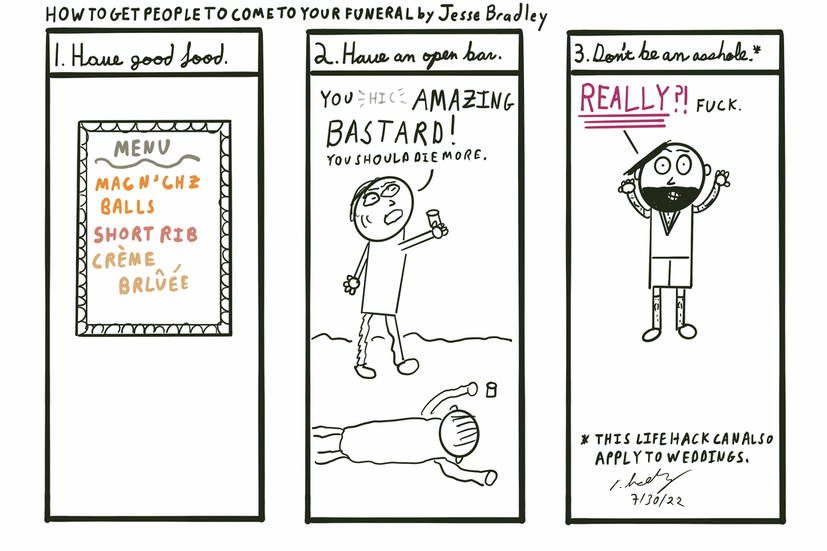
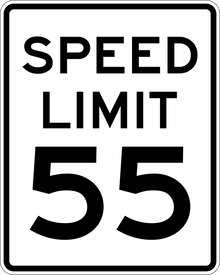
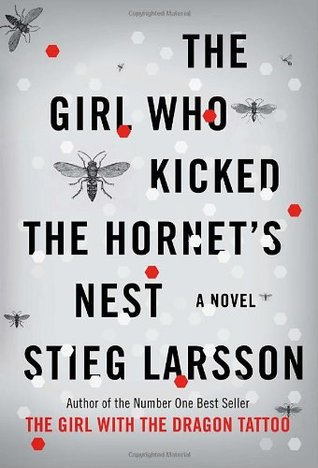

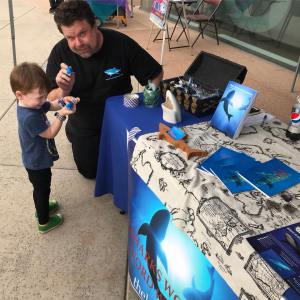
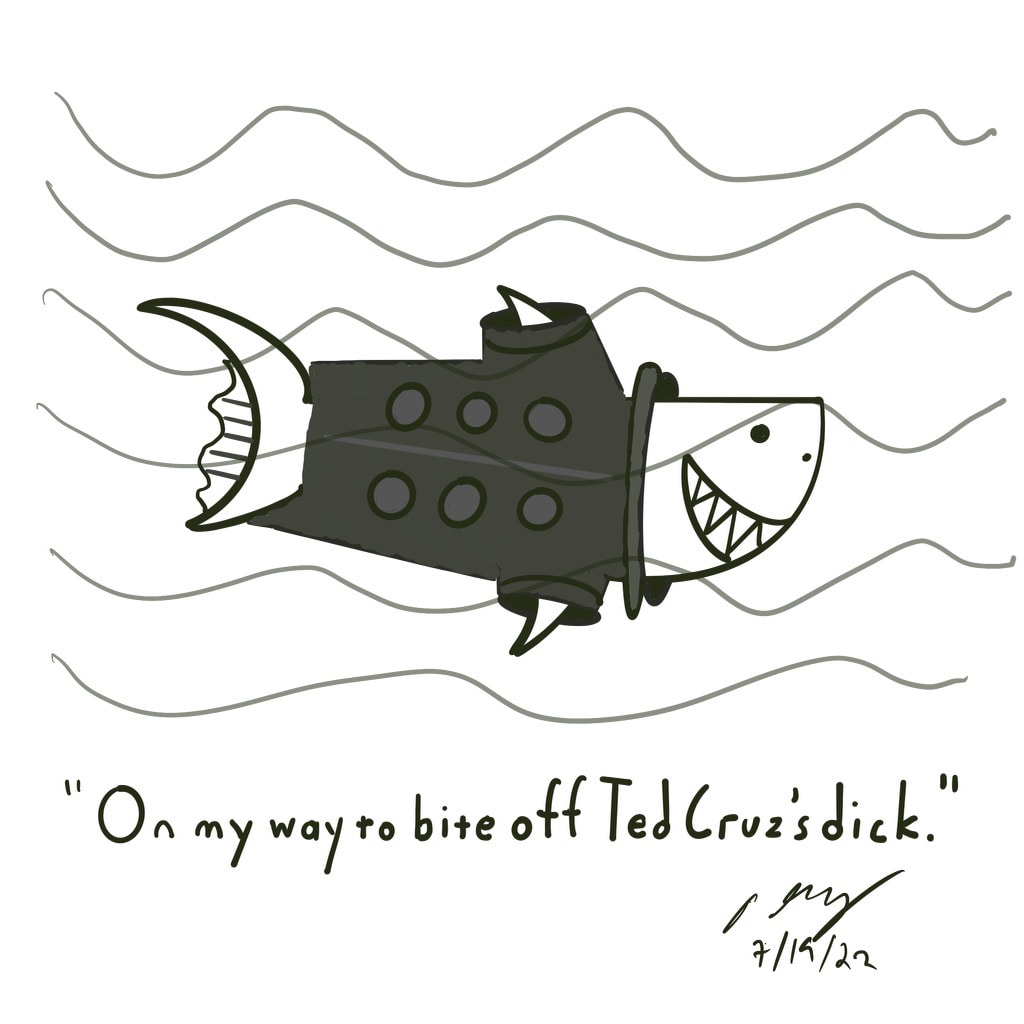
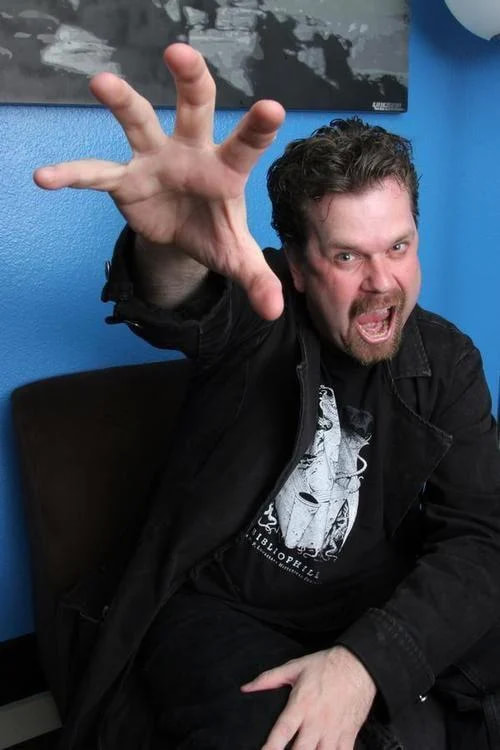
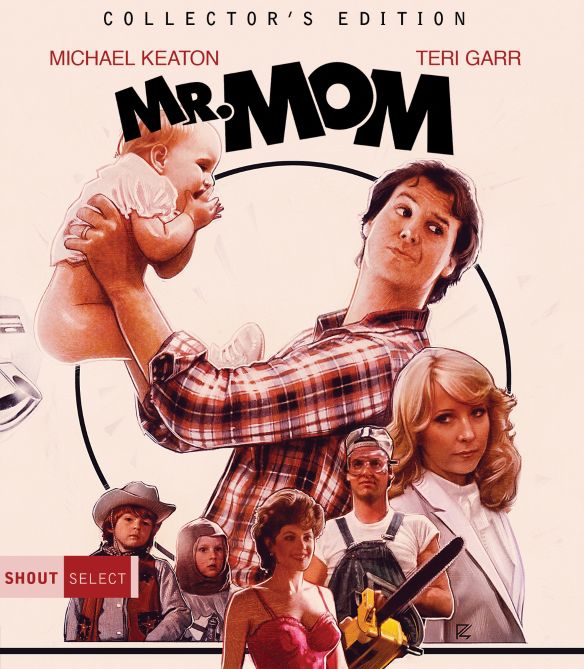
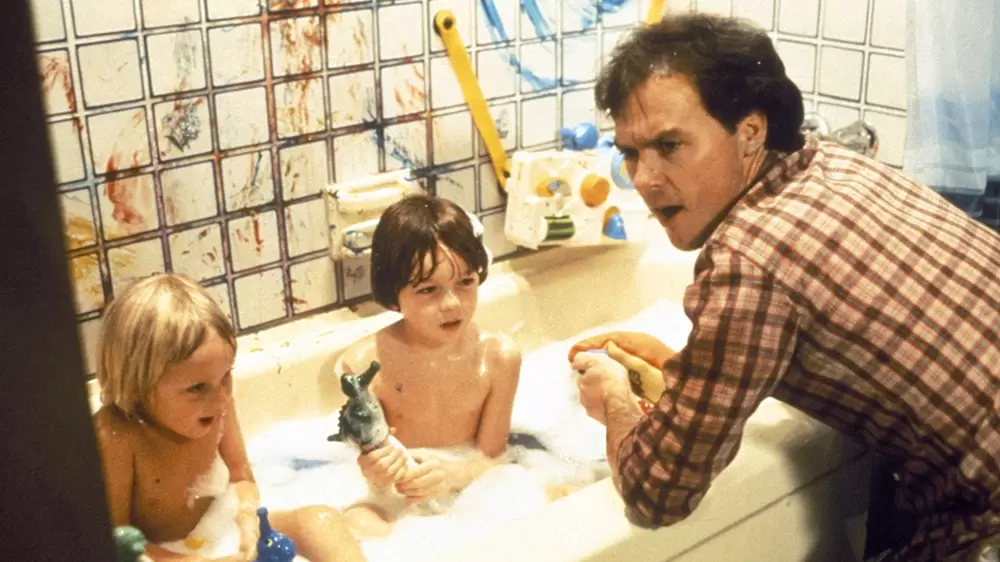

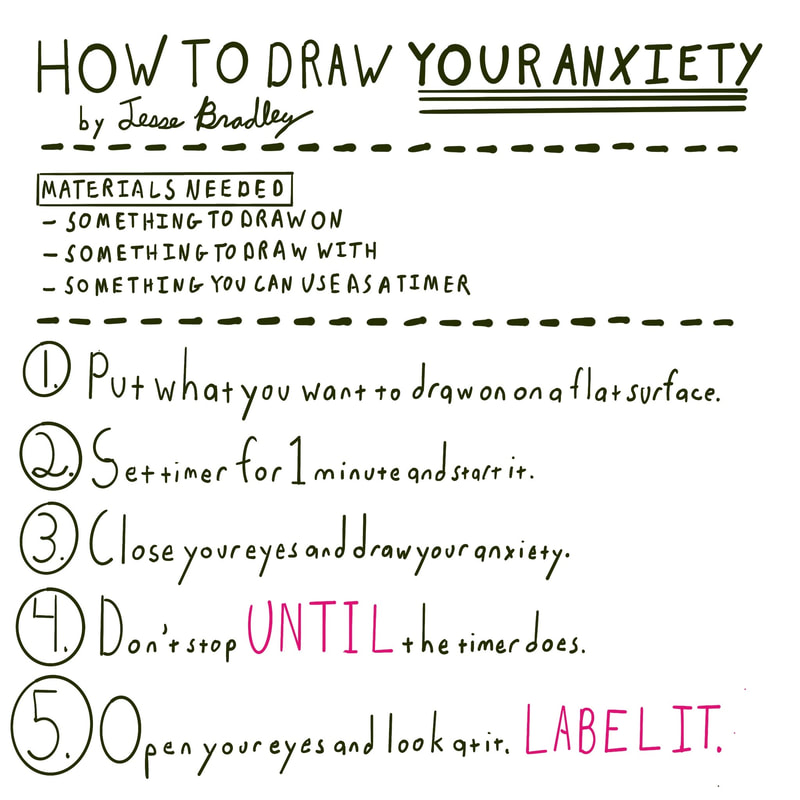
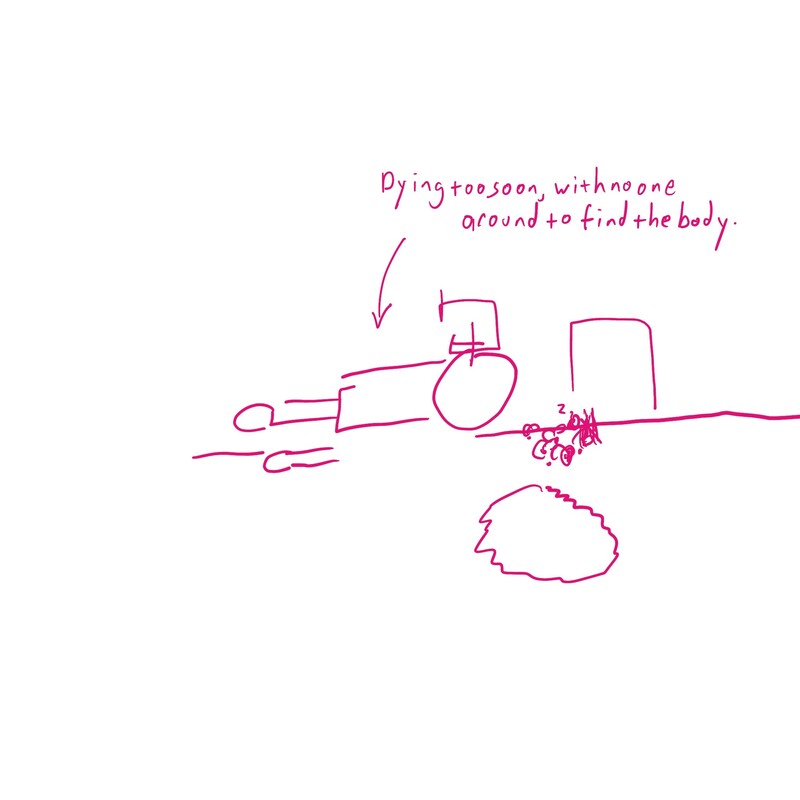
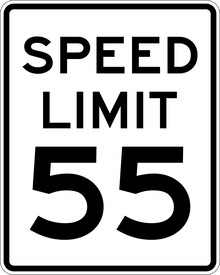
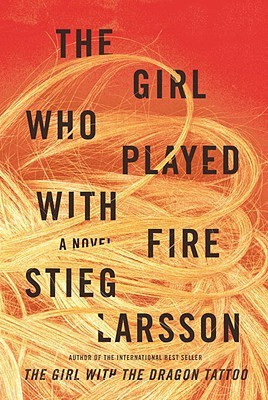


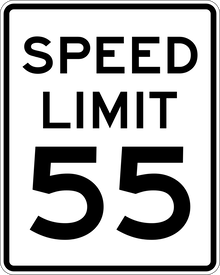
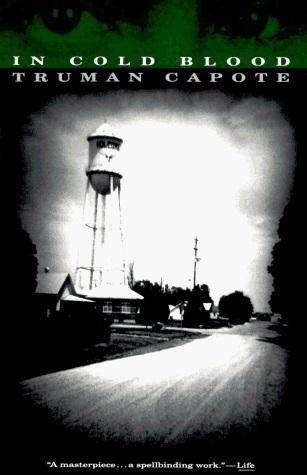



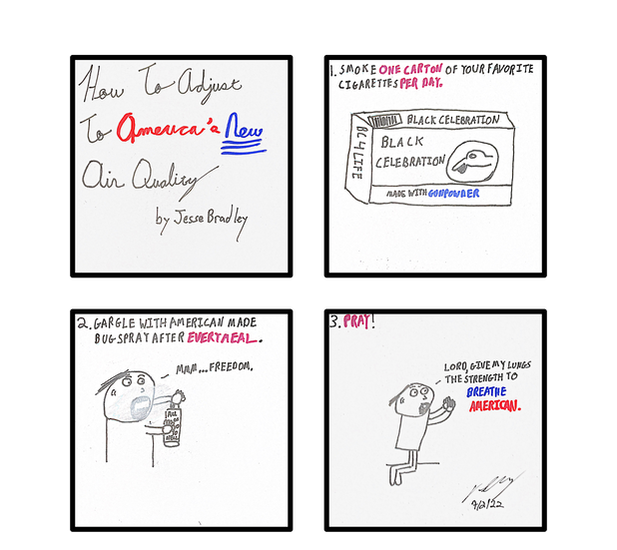
 RSS Feed
RSS Feed